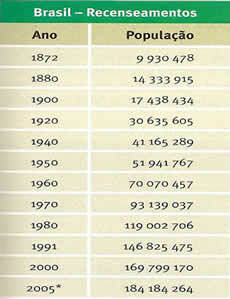Several countries, such as Argentina, Mexico and Brazil, have started the process of industrialization effective from the second half of the 20th century, however, the embryo of this process in Brazil occurred in the first decades of the 30s, moments after the crisis of the 29th. This crisis caused the bankruptcy of many coffee producers, with that, the coffee production went into decline.
When talking about industrialization of Brazil It is worth noting that this process did not take place at the national level, since the first region to develop industrially was the Southeast Region.
Brazilian industrialization in this period was linked to coffee production and the capital derived from it. Between the end of the 19th century and the first decades of the 20th century, coffee was of great importance to the country's economy, not least because it was practically the only Brazilian export product. The cultivation of this crop was developed especially in the states of São Paulo, Rio de Janeiro, Espírito Santo and some areas of Minas Gerais.
After the crisis that directly hit the coffee growers, they sought new productive alternatives, in this way, many of the infrastructures previously used in the production of coffee transport started, from that moment on, to be used for the production industrial.
Given this process, the Brazilian industry began to diversify, however, it was limited only to the production of products that used little technology, such as the textile and food sectors, in addition to soap and candle factories.
There were several factors that contributed to the intensification of Brazilian industry, among the main are: accelerated growth of large urban centers thanks to the phenomenon of rural exodus, promoted by the fall of coffee. From this migration there was a great increase in consumers, presenting the need to produce consumer goods for the population.
Do not stop now... There's more after the advertising ;)
Another important factor for Brazilian industrialization was the use of railroads and ports, previously used to transport coffee, became part of the industrial sector. In addition to this factor, another reason that favored industrial growth was the abundant amount of foreign labor, especially Italians, who previously worked in coffee production.
One of the fundamental elements for Brazilian industrialization was the application of capital generated in the production of coffee for the industry, the contribution of foreigners in the factories, such as Germans, Italians and Spanish people.
The State was also very important in this regard, as it invested heavily in basic and infrastructure industries, such as railways, highways, ports, electricity, among others.
Later, after World War II, Europe was unable to export industrialized products, as the entire continent was fully devastated by armed confrontation, then Brazil had to increase its industrial park and carry out the well-known industrialization by replacement of export.
In that same decade, several companies from industrialized countries were included. acted especially in the segment of the automobile, chemical, pharmaceutical and electronics. From then on, Brazil effectively entered the industrialization process, ceasing to be an essentially primary producer country to an industrial and urban state.
By Eduardo de Freitas
Graduated in Geography
The industrialization process in Brazil was started in a more consolidated way:
a) by the Portuguese, who saw in their colony the potential to produce machine-made goods for the metropolis.
b) by the Vargas government, thanks to the effects felt by the country in the face of the 1929 crisis.
c) by the Military Dictatorship, which was concerned with mobilizing surplus labor in large cities due to the occurrence of rural exodus.

